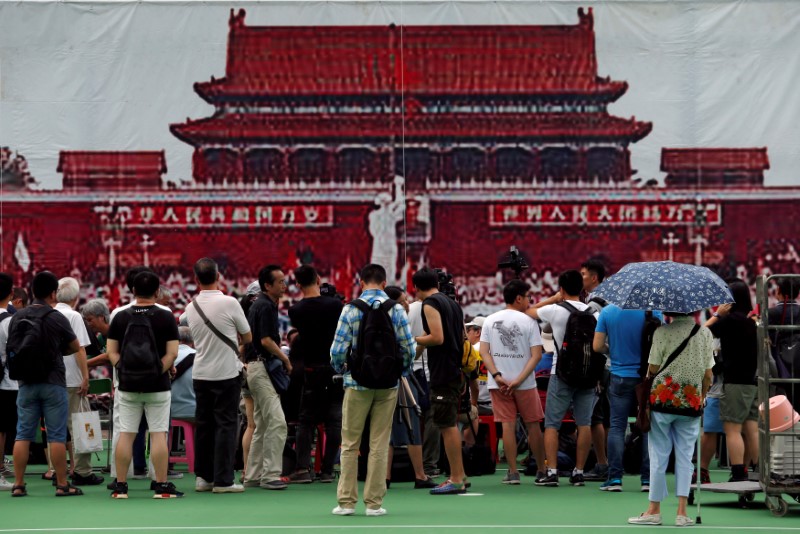BEIJING (Reuters) - The United States should reject its "prejudices" and stop making groundless accusations, China's foreign ministry said, after Secretary of State Rex Tillerson called for a full accounting of the 1989 crackdown on pro-democracy protesters in Beijing.
China's Communist Party rulers sent tanks on June 4, 1989, to quell the protests in and around Beijing's Tiananmen Square (NYSE:SQ), and has never released a death toll. Estimates from human rights groups and witnesses range from several hundred to several thousand.
On Sunday, the 28th anniversary of the incident, Tillerson reiterated a U.S. call for China to make a full accounting of those killed, detained, or missing.
"We urge China to cease harassment of family members seeking redress and to release from prison those who have been jailed for striving to keep the memory of Tiananmen Square alive," he said in a statement on the State Department's website.
In a short statement in English, carried by China's official Xinhua news agency late on Monday, China's foreign ministry said the government had "already made definitive conclusions on the political turbulence in the late 1980s".
"The U.S. side ignored objective facts, made groundless accusations of the Chinese government year after year, and interfered in China's internal affairs," Xinhua said, citing the ministry.
"China is firmly opposed to the U.S. activities and has made solemn representations to the United States," it added.
"We urge the U.S. side to discard prejudices, rectify wrongdoings and safeguard the steady development of China-U.S. ties through real actions."
China and the United States frequently clash over human rights issues, though the Trump administration has been criticised by rights groups for downplaying the issue.
Tillerson said the United States views the protection of human rights as a "fundamental duty of all countries".
"We urge the Chinese government to respect the universal rights and fundamental freedoms of all its citizens."

Public discussion of the events of 1989 in China is taboo, though every year thousands of people join a vigil in the Chinese territory of Hong Kong to commemorate the event.